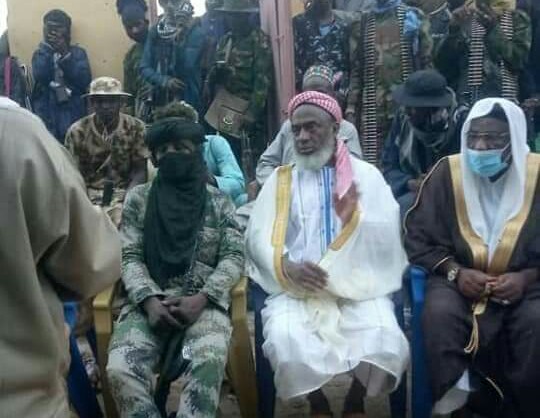By Zwahu, Yanwaidi
In a highly charged political environment, some conversations become rather difficult to have. The issue of the Fulani and kidnapping and banditry is one such conversation because of the obvious likelihood of being accused of ethnic profiling. The reality however is that this problem is threatening to consume all of us and the earlier we rose up to have this conversation the better for ourselves as a people, a nation, and especially as a region.
The Sultan of Sokoto, His Eminence Muhammad Sa’ad Abubakar IV, was recently reported to have said that seven out of ten of kidnappers arrested are Fulani. He added, however, that this should not make the Fulani race to be tarred with the criminality of a few.
Some northern governors, like those of Katsina and Zamfara States, have at one time or another engaged and negotiated with some Fulani militia for respite from the onslaught that has been visited upon citizens in their states.
Even while the problem with the Fulani was widely viewed as simply herder-farmer clashes, the Center for Democratic Development Research and Training, Zaria, conducted a study on the problem in Zamfara State. In an interview that gained visibility on social media recently, one of the researchers, the distinguished Dr Abubakar Siddique Mohammed, gave some insights into the different dimensions of the crisis, such as the grouses of the communities and the Fulani respectively, and even the role of politicians in exacerbating the crisis.
Recently also, the respected Islamic cleric, Sheikh Ahmad Mahmoud Gumi, worried by the spate of banditry and kidnapping in the Northwest, undertook a missionary voyage to the Fulani across a number of forests. Pictures that emerged from some spots of his visits show the cleric’s hosts with military wears and wielding assorted firearms. In fact in the Zamfara-Sokoto axis, one Kachalla Turji, said to be the militia leader there, was reported to have ominously warned that government’s reckless handling of the situation is exactly how the Boko Haram started.
Finally, and very disturbingly, is the recent development in the Southwest where natives have issued eviction orders from their communities to the Fulani, and even sadly followed their threat with action. This one is generating quite a bit of furore and heating up the polity in no small measure.
All of the above have been brought here to underscore the fact a particular ethnic group is at the centre stage of all of these problems and it is simply helpless to hold real and meaningful conversations on the issue without mentioning the group. The facts are simply out there.
The vast majority of Fulani are good and law abiding people, who are in fact embarrassed at being associated with this criminality and vandalism because of ethnic affinity to the perpetrators. However, for the problem to be this widespread across regions of this country, it demands that questions be asked concerning the Fulani society. These questions must be asked by the many good and peace loving Fulani as well as the rest of Nigeria, because we must all join hands to find solutions to the problem.
What has gone wrong with the Fulani society? Why have they suddenly ended up at loggerheads with people they have long lived peacefully with? Is it simple criminality by some bad eggs or are they caught up in some circumstances that neither they nor other people understand? Has the general Nigerian society moved on and left them in the margins, and what we are now experiencing is a backlash of that reality? Are they at the point of some socio-cultural decay, whereby their way of life cannot guarantee them a competitive edge to be able to partake in the economy and socio-culture of present-day Nigeria? What are some natural and environmental realities that constitute against them to limit their aspirations? Are these bandits themselves victims and pawns in the hand of unseen persons for the pursuit of some clandestine agenda? The questions are many.
The truth is that all of us, including the indicted, are suffering; and while mischief makers would use the situation for some nefarious ends, some others will genuinely groan under the weight of their pains. Still many people of goodwill will seek to engage with the issues with a view to finding solutions; they must never be stampeded into silence with the allegation of ethnic profiling. The signal must be separated from the noise.
Through our pains and embarrassments, we must all together work for a way out of this cruel maze.






